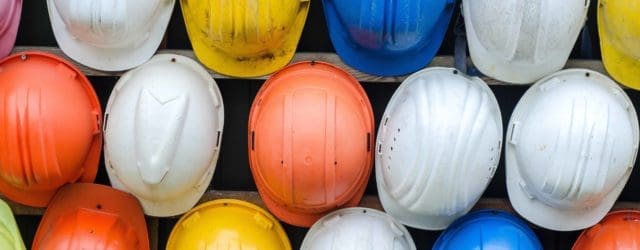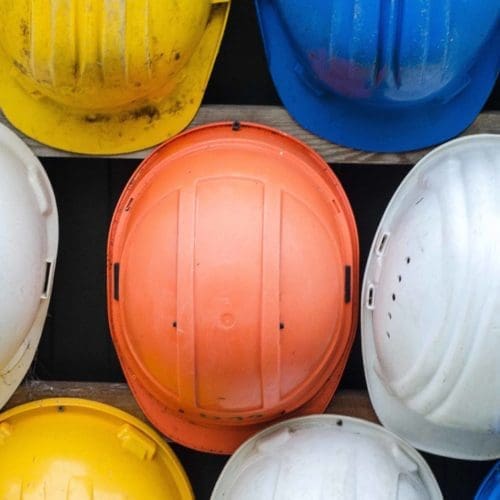Building Safety Bill – New Proposed Draft Regulations
October 2021On the 14th October, the Government updated and published a series of six draft Regulations to accompany the Building Safety Bill (“the Bill”), which continues to make its way through parliament and is on track to become law in 2022. Together with those published on 5th July, these draft Regulations are yet to become finalised, but provide useful clarity on several elements of the Bill and enable stakeholders to prepare for the new regime. This update will be of use to all parties involved in the construction industry, who will soon have to become familiar with the new regime proposed under the Bill.
The Draft Architects (Fees for Services) Regulations [2022]
This draft Regulation will allow the Secretary of State to make regulations for and relating to the charging of fees by the Architects Registration Board (“ARB”) in respect of other services it provides.
Section 2 sets out that the ARB may charge a fee for prescribing a qualification under section 4(1)(a) of the Architects Act 1997 and for providing any document or information about a person whose name is entered on the Register.
The draft Regulation provides that the ARB may prescribe different fees for different cases, however the amount of a fee must not exceed the reasonable costs of providing the service.
This Regulation will impact upon architects in increasing the cost of business, as these additional fees become payable to the ARB. Such a development is unlikely to be welcomed, given the recent decision of ARB to increase its annual retention fee from £119 to £149, the largest single increase in its history.
The Draft Building (Restricted Activities and Functions) (England) Regulations [2022]
These draft Regulations provide that certain functions of local authorities, the Health and
Safety Executive and registered building control approvers may only be exercised after receiving advice from a registered building inspector. In addition, the draft Regulation states certain activities of local authorities and registered building control approvers must be exercised by using a registered building inspector.
The Draft Higher-Risk Buildings (Prescribed Principles for Management of Building Safety Risks) Regulations [2022]
These draft Regulations provide valuable guidance as to how in practice the ‘Accountable Person’ satisfies their duty to ‘take all reasonable steps in preventing a building safety risk materialising and to reduce the severity of any incident resulting from such a risk materialising’, as set out under s84 Building Safety Bill. S84(3) provides that when carrying out this duty, the Accountable Person must act in accordance with ‘Prescribed Principles’.
The draft Regulations set out the Prescribed Principles as follows:
- avoid building safety risks;
- evaluate building safety risks that cannot be avoided, including identifying the proportionate measures required to reduce address and mitigate the building safety risks;
- combat building safety risks at source by introducing proportionate measures to reduce, address and mitigate that risk at the earliest opportunity;
- ensure suitable and proportionate systems are in place for the effective inspection, testing and maintenance of the efficacy of measures taken;
- give collective protective measures priority over individual protective measures;
- adapt to technical progress;
- where reasonable to do so, replace the dangerous with the non-dangerous or less dangerous;
- where reasonable to do so, consider the impacts on residents within the Higher Risk Building and carry out engagement with those residents, and
- give appropriate instructions and information to employees and persons working on or in the higher-risk building.
Given that the Accountable Person is a newly created role, there remains a level of uncertainty as to exactly what the role will encompass in practice. Clarity on how exactly the Accountable Person satisfies its duties are therefore welcome, particularly by such individuals, partnerships or corporate bodies who will take on the responsibilities created by the role.
The Draft Building Safety (Fees) Regulations [2022]
These draft Regulations set out the fees and charging provisions of the Building Safety Regulator, a new body created in the Health and Safety Executive responsible for overseeing and implementing the new regime as set out by the Building Safety Bill.
The draft Regulations state that the Regulator may charge fees and recover charges for the performance of a chargeable function. A detailed list of the Regulators chargeable functions are given, and include activities such as the determination of a building control approval application, the inspection of work to ensure compliance with Building Regulations and the determination of a completion certificate application.
The Regulator must also set out the level of the fee and how it is to be calculated in a charging scheme, which it must publish on its website.
The Draft Construction Products Regulations 2022
These draft Regulations regulate the safety of construction products being placed on the market in the United Kingdom and puts certain obligations on the ‘economic operator’ which is defined as ‘a manufacturer, an authorised representative, an importer, or distributor’. The Regulations comprise of 7 Parts, the most significant being:
Part 2 sets out that the ‘general safety requirement’ which states an economic operator must not make a construction product available on the market unless it is a safe product. It also places varying obligations upon manufacturers, importers and distributors to ensure compliance with the general safety requirement.
Part 3 regulates ‘safety critical products’ which are products that may risk death or serious injury to any person. Requirements are placed on economic operators before a safety critical product can be placed on the UK market.
Part 4 states that an economic operator must not make a claim, representation or commercial communication is false or misleading, in relation to a construction product they place on the market.
These draft Regulations are part of the government’s efforts to remove unsafe and dangerous materials from the UK market, such as ACM cladding which was deemed by Sir Martin Moore-Bick, the chair of the Grenfell Inquiry, to be the ‘principle reason’ why flames spread so quickly, as the polyethylene cores of the cladding melted and acted as a source of fuel for the growing fire. Combustible cladding materials including ACM were subsequently banned on 21st December 2018.
As these Regulations remain in draft form, we may likely see further revisions as the Building Safety Bill continues its passage through parliament. In the meantime, continue to follow Beale & Co’s Building Safety Bill series for the latest updates, for further information please contact Joanna Lewis or Felicity Hird.
To read the our previous articles on the Building Safety Bill, please click here.
Download PDF








